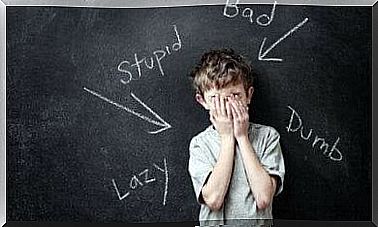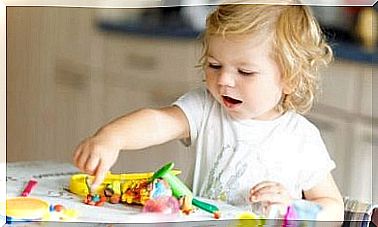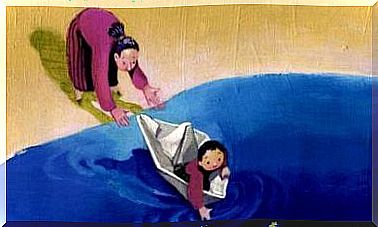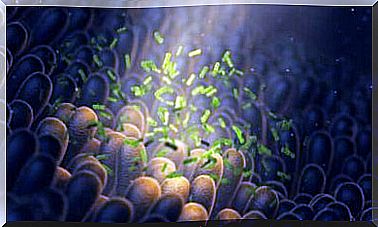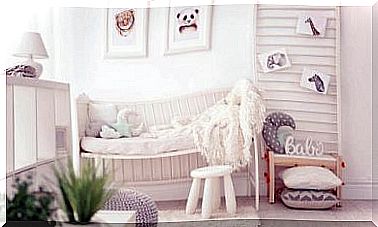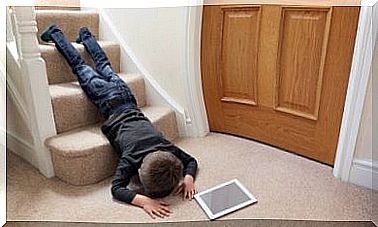My Baby Is Drooling A Lot, What Should I Do? – Being Parents
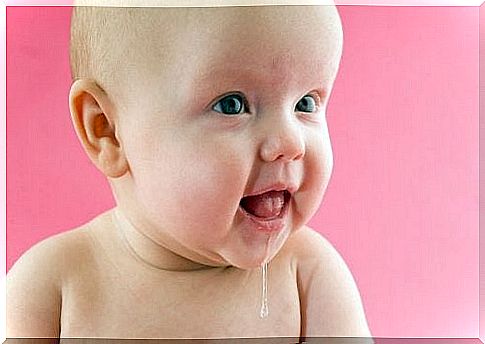
My baby is drooling a lot, what should I do? This is a very common question among first-time mothers. They get worried when they see their little saliva more than they think they should.
Excess saliva or slime is normal in babies. This is due to the fact that they do not yet know how to swallow. From the age of two months, the baby begins to drool excessively. It also does this when it comes into the teething process.
A newborn baby does not produce that much saliva. However, the months pass and the stage of sucking and biting everything begins. This is when the production of saliva increases. The baby produces it without realizing it. He drools naturally for this reason, something that does not happen with milk.
It all depends on the swallowing system. When feeding, babies use the muscles in their mouths to suck everything. In contrast, saliva occurs on its own and remains in the mouth until its level overflows.
In this case, the use of a bib is effective. This prevents the baby’s chest from getting wet and keeps him warm. Also, we have to be careful and keep the little one’s mouth dry to prevent it from getting irritated.
My baby is drooling a lot, when should I be worried?
When a baby is sick, it is normal for them to drool excessively. If we notice that he is doing it without getting sick, now is the time to see your pediatrician.
When the drooling lasts a long time, it may mean that the baby may have a problem with the nervous system that is not allowing her to swallow properly.
Also, if the baby is eating poorly and drooling a lot, it may mean that swallowing hurts. Usually, the cause is a viral infection which results in pain or sores in the mouth.
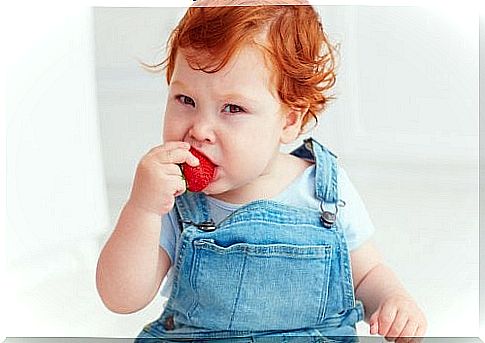
If your child drools a lot, he or she is at risk of choking a lot or feeling nauseous. He may also have breathing difficulties. In these cases, it is best to stay calm and take your baby to the pediatrician to rule out any pathology.
Finally, it is also important to recognize that the baby’s swallowing reflex is immature and tends to delay a bit.
Is it just for the teeth that my baby is drooling a lot?
Obviously, one of the reasons a baby drools excessively is teething. Although they are slow to appear, from the second month, the dental nuclei under the gums begin to move.
Saliva contains enzymes, which help fight possible infections. This is why its production will increase as soon as the first tooth comes out. At this stage, the baby will probably “ask” for a teething ring. These little elements relieve their gums but produce a lot of saliva.
Then the first thing the child discovers are his hands. He quickly begins to put them in his mouth. He thus explores new sensations. By playing with his hands in his mouth, he stimulates the production of saliva and begins to drool.
This activity is beneficial when the baby begins complementary feeding. For example, eating foods and putting them in their mouths introduces them to the complementary diet with solid foods.
When they start to bite their fingers and play with their tongue, babies stimulate the production of saliva. This is necessary to soften and swallow food.
Thus, the baby tends to bite in the area where the teeth appear. This part is often swollen and reddish. Salivation is rather pronounced and necessary at this time. Indeed, it hydrates the area and prevents infections.
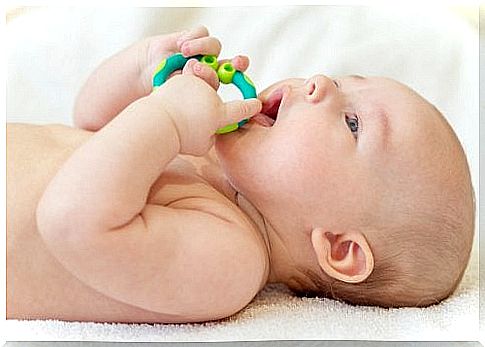
Saliva and diet
The new tastes and sensations produced by the introduction of solid foods stimulate the taste buds. This generates more saliva than usual. The role of saliva is to act as a lubricant and help food reach the stomach.
You should be careful that your baby’s salivation is not higher than what is considered normal. In general, the average age at which a child stops drooling is 18 months, although this varies widely. It all depends on its ripening process, acceptance of the introduction of solid foods and teething.
It is essential not to be alarmed. Carry an absorbent bib with you. A pacifier will be very useful to help the baby during this period. Discover and calmly enjoy each stage of your baby’s growth. Always remember, whether it’s good times or bad, they are all unique and will not be repeated.


